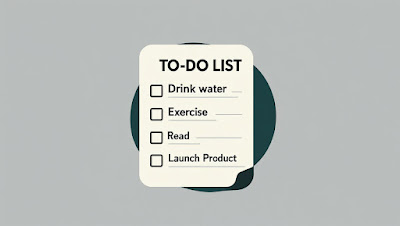How Meditation and Mindfulness Improve Memory
How Meditation and Mindfulness Improve Memory - In today’s fast-paced world, distractions and stress can significantly impact our ability to focus, learn, and retain information. Fortunately, meditation and mindfulness offer scientifically backed benefits for improving memory and cognitive function. By incorporating these practices into your daily routine, you can enhance your ability to process, store, and recall information more effectively.
The Science Behind Meditation and Memory
Meditation and mindfulness practices influence the brain in several ways that contribute to improved memory:
Reduces Stress and Lowers Cortisol Levels
Chronic stress and high cortisol levels negatively impact the hippocampus, the part of the brain responsible for memory and learning.
Meditation helps regulate stress responses, keeping cortisol levels in check and protecting memory function.
Enhances Focus and Attention
Memory retention starts with attention. If you're not fully focused on information when receiving it, it becomes harder to recall later.
Meditation improves concentration by training the brain to stay present, reducing distractions.
Promotes Neuroplasticity and Brain Growth
Research shows that meditation increases gray matter density in brain regions associated with memory, including the hippocampus and prefrontal cortex.
This structural change strengthens neural connections, improving memory retention and recall.
Improves Working Memory
Working memory is the ability to hold and manipulate information over short periods.
Studies suggest that mindfulness meditation enhances working memory by increasing cognitive flexibility and reducing mind-wandering.
Boosts Emotional Regulation and Positive Associations with Learning
Negative emotions can cloud memory and focus.
By practicing mindfulness, individuals develop greater emotional control, making learning experiences more positive and effective.
Best Meditation and Mindfulness Practices for Memory Enhancement
Incorporating meditation and mindfulness into your routine can be simple and highly effective. Here are some proven techniques:
1. Focused Attention Meditation
Involves concentrating on a single object, thought, or breath to train the mind.
Helps improve sustained attention, which enhances memory encoding.
How to practice: Sit comfortably, close your eyes, and focus on your breath. If your mind wanders, gently bring it back to your breath.
2. Mindfulness Meditation
Encourages awareness of the present moment without judgment.
Strengthens neural pathways responsible for memory and cognition.
How to practice: Pay attention to your surroundings, sensations, and thoughts without trying to change or judge them.
3. Loving-Kindness Meditation (Metta Meditation)
Focuses on cultivating positive emotions toward yourself and others.
Enhances emotional well-being, reducing stress and improving cognitive function.
How to practice: Silently repeat phrases like, "May I be happy, may I be healthy," extending the wishes to others as well.
4. Body Scan Meditation
Increases bodily awareness and reduces mental clutter that affects memory.
How to practice: Slowly focus on different parts of your body, starting from your toes and moving upward, noticing any sensations or tension.
5. Guided Visualization Meditation
Tips for Making Meditation a Daily Habit
Start Small – Begin with just 5-10 minutes a day and gradually increase your practice.
Be Consistent – Set a specific time each day for meditation, such as in the morning or before bed.
Use Apps or Guided Sessions – Apps like Headspace, Calm, or Insight Timer offer structured meditations.
Combine with Deep Breathing – Practicing deep breathing alongside meditation enhances relaxation and memory benefits.
Incorporate Mindfulness Throughout the Day – Stay present while eating, walking, or doing daily tasks to strengthen mindfulness skills.
Conclusion
Meditation and mindfulness are powerful tools for enhancing memory, focus, and overall brain function. By practicing these techniques regularly, you can reduce stress, improve attention, and strengthen cognitive abilities. Whether you're a student, professional, or someone looking to sharpen your memory, integrating mindfulness into your daily life will provide lasting benefits for brain health.
How Meditation and Mindfulness Improve Memory








